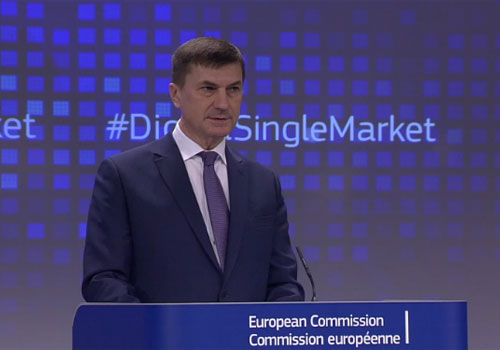
EU Commission seeking action on cross-border parcel shipping prices
The EU Commission has pledged to work to harmonise delivery charges and rules for parcels as part of its new strategy to boost e-commerce. The European Union’s executive branch said on Wednesday that as part of its forthcoming Digital Single Market Strategy, parcel delivery will be a priority area for action in order to reduce the barriers to digital trade across the 28 Member States.
The strategy seeks to fuel EUR 340bn in growth along with hundreds of thousands of new jobs by boosting the digital economy in Europe.
The Commission said only 15% of EU consumers currently shop online across borders, compared to 44% shopping online domestically, stating that this was “not surprising” if delivery charges were “higher than the actual price of the product”.
It said EU cross-border online services represent only 4% of the current digital market.
The Commission also said that only 7% of SMEs currently sell cross-border, and that currently these small businesses face around EUR 9,000 in extra costs if they want to sell abroad, in adapting to national laws.
According to the figures issued by the Commission this week, more than 85% of e-shoppers said delivery price was the most important factor when buying online, while 62% of companies willing to sell online said high delivery costs were a problem.
The new EU Digital Single Market Strategy also contains measures to improve rules on data protection and copyright, country-specific blocking of websites, broadband coverage, digital skills and training, and a simplification of VAT rules for selling cross-border.
The Commission said its full Digital Single Market Strategy is expected to be unveiled in May.
Parcel prices

The EU Commission’s vice-president for the digital single market, Andrus Ansip, said he wanted to see more transparency in cross-border parcel pricing
Speaking at a press conference on the forthcoming strategy, the Commission’s vice-president for the Digital Single Market, Andrus Ansip, said cross-border parcel prices was a particular problem he wanted to see tackled.
“According to entrepreneurs, price of parcel delivery and lack of transparency is one of the main obstacles towards e-commerce,” he said.
“According to those accusations, delivery price is not based on cost. And looking on those prices we can easily say yes, we cannot see so much logic in those prices.”
Ansip complained that parcels being delivered between two countries currently see different shipping prices each way. He theorised that these cost differences were based on differences in costs seen in the last mile in each country, but stated his belief that there was no real transparency in the issue.
The Commission’s digital vice-president gave examples of a parcel going from Belgium to Poland costing around EUR 6 to ship, while a parcel from Poland to Belgium might cost EUR 14 to ship. A parcel crossing the bridge from Swedish city Malmö over to the Danish capital Copenhagen would cost EUR 42 to deliver, while if the parcel went the other way it would cost EUR 27 to deliver, he said.
However, Ansip said the Commission was not keen on formally regulating cross-border parcel pricing.
“There is lack of transparency in pricing, and we would like to ask for more transparency,” he said. “Deep in my heart I’m not supporting price regulations or setting caps. Transparency and public support will help us to decrease those prices in parcel delivery.”












